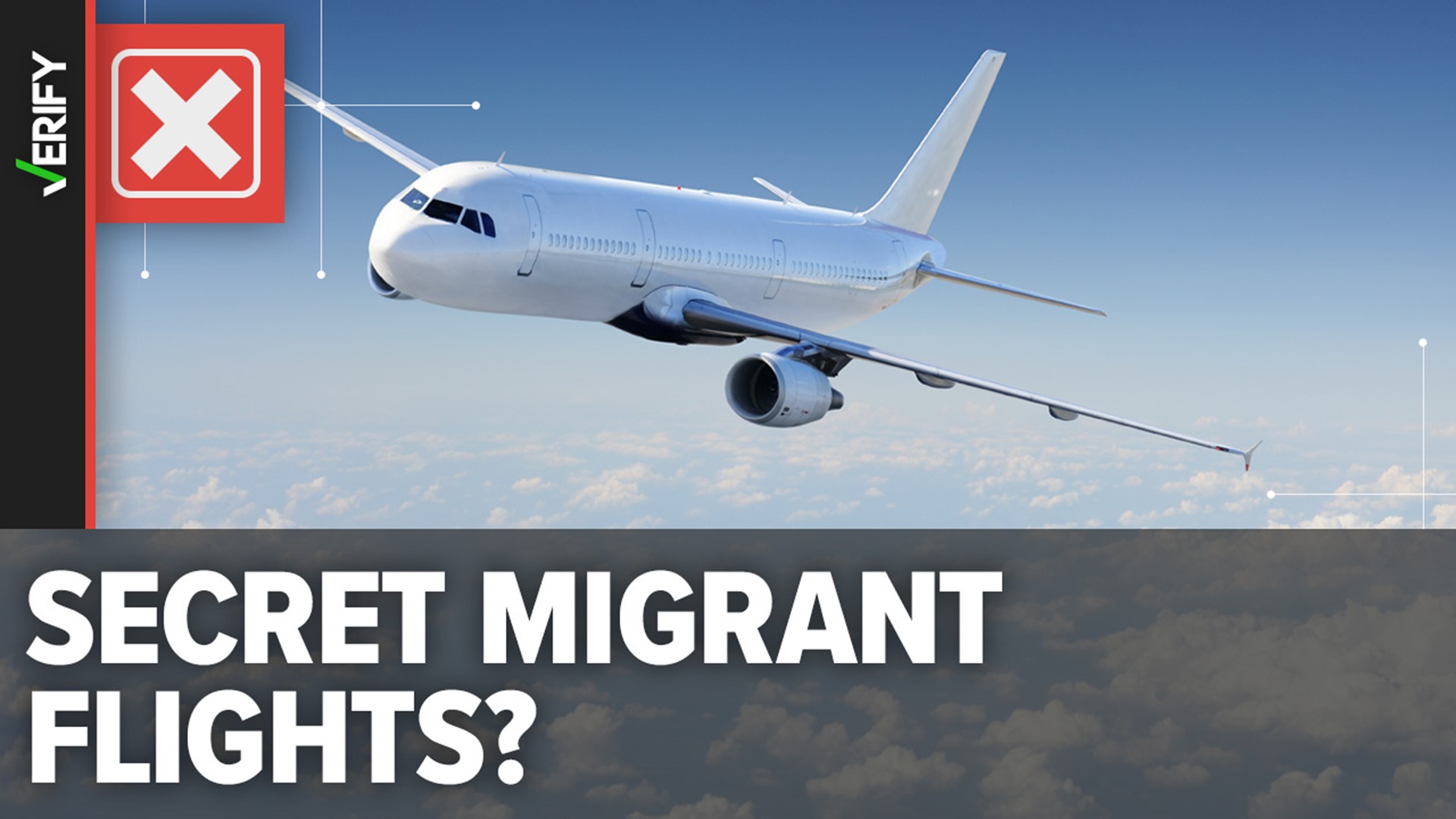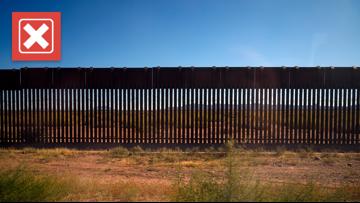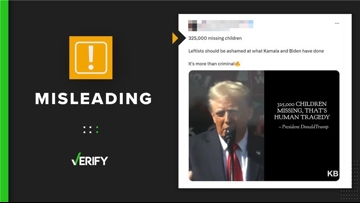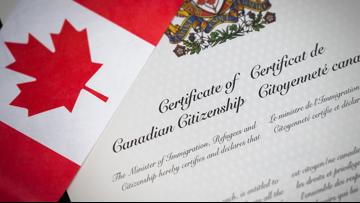Large numbers of migrants continue to cross the southern U.S. border without legal authorization, keeping immigration policy a central point of debate during the 2024 presidential election season.
Tabloids like the Daily Mail have recently published stories that claim “325,000 migrants have been flown into the U.S. on secret flights under Biden.” Former President Donald Trump echoed this claim during a speech on March 5. Multiple VERIFY readers have emailed us inquiring about the claim.
We VERIFY four key questions about the migrant flights.
THE SOURCES
QUESTION #1
Is there a program that allows migrants otherwise ineligible for admission into the U.S. to fly into the country?
THE ANSWER
Yes. There are actually several programs that allow migrants who may otherwise be ineligible for admission into the U.S. to fly to an American airport. These programs exist as an option for such migrants to temporarily travel to or stay in the U.S.
These programs are authorized by The Immigration and Nationality Act (INA) and grant migrants “parole status.” Parole status allows DHS to temporarily admit people into the U.S. who would otherwise not be admitted in cases of “urgent humanitarian or significant public benefit,” U.S. Citizenship and Immigration Services (USCIS) says. For example, after the Russian invasion of Ukraine, the U.S. offered parole programs for Ukrainian citizens to travel to and enter the United States.
In some cases, the government authorizes a migrant to travel to the U.S. and request parole from a U.S. Customs and Border Patrol (CBP) officer at the airport; this is called advance parole.
Biden administration advance parole programs include Processes for Cubans, Haitians, Nicaraguans, and Venezuelans (CHNV), Uniting for Ukraine and family reunification parole.
An individual who has been paroled into the U.S. has not been formally admitted to the U.S. and is still considered an applicant for admission.
Any migrant granted advance parole must have a valid passport from their country of origin and a sponsor who can financially support them. Some of the programs, such as CHNV, will not admit parolees who have made prior attempts to enter the U.S. without authorization within the last five years.
A migrant must submit an application to both request parole and receive advance travel authorization. USCIS says its officers consider "each request and the evidence provided on a case-by-case basis" including whether there is evidence of any "national security concerns" or "criminal history."
USCIS says that parolees are typically granted one year of parole, although some programs may grant different periods of parole — CHNV grants two. The parolee is granted work authorization during their stay and can reapply to extend their parole past its original expiration date. Otherwise, the migrant has to leave the U.S. when their parole period ends.
QUESTION #2
Are these programs secret?
THE ANSWER
No, these programs are not secret.
Information on parole programs is available on the USCIS and CBP websites and the flights migrants use are public, commercial flights booked and paid for by themselves. However, certain data on these programs are not public.
Trump’s comments and reader questions originate from a report by the Center for Immigration Studies, a nonprofit organization that conducts research on U.S. immigration policy and is described by the Southern Poverty Law Center as an “anti-immigrant hate group.” According to the report, 320,000 inadmissible migrants arrived at 43 U.S. airports through parole programs from January to December 2023.
The CIS claims their data came from a Freedom of Information Act (FOIA) request, but CIS did not make that data public.
There is no official publicly available data on how many migrants enter the U.S. by air through the advance parole process. U.S. Customs and Border Protection (CBP) data says 1.1 million migrants entered the U.S. by air in 2023, but those numbers include all migrants, including those who have been granted full, permanent admission into the United States.
People wishing to participate in one of these programs can request an appointment with CBP through the CBP One mobile app. These appointments can be held at airports or at official ports of entry along the border. According to CBP data, 459,000 people successfully scheduled appointments through the CBP One app between January 2023 and the end of January 2024.
While we can’t confirm that 320,000 advance parolees entered the U.S. by air in 2023, it is feasible based on total migrant air travel and CBP One app statistics.
QUESTION #3
Does the government pay for the migrants’ flights?
THE ANSWER
No, the government does not pay for the migrants’ flights.
Once someone is granted an appointment with a CBP agent in the U.S. and receives authorization to travel, they are responsible for the cost of travel to the United States. This authorization does not guarantee an applicant will get to stay in the country once they arrive; a CBP officer could choose to deny the migrant parole after their appointment at an official port of entry — in this case, the airport.
Additionally, the government only authorizes parolees who can prove they have a sponsor capable and willing to financially support them.
QUESTION #4
Is this a new program?
THE ANSWER
No, this is not a new program.
According to a Congressional Research Service report, the U.S. has been using parole programs to admit refugees beginning in the 1950s. The 1996 Illegal Immigration Reform and Immigrant Responsibility Act established parole’s current use “on a case-by-case basis for urgent humanitarian reasons or significant public benefit.”
For example, the Cuban Family Reunification Parole (CFRP) has allowed potential Cuban migrants with family members in the U.S. to request advance parole since 2007, the Congressional Research Service report says.
This story is also available in Spanish / Lee este artículo también en español: Verificamos 4 afirmaciones sobre los vuelos de inmigrantes de la administración Biden












